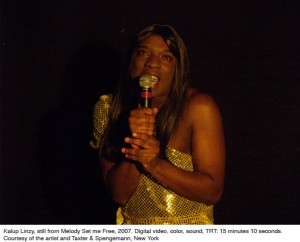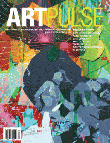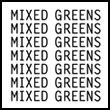« Reviews
Kalup Linzy. Moore Space, Miami

May 10th - July 1st, 2008
On view at the Moore Space this summer was the work of video and performance artist Kalup Linzy. At first visually familiar, and not in a classically beautiful way, Kalup Linzy’s work at casual glance appears to be amateurish. But that’s before everything starts. Things soon become superb and the experience, unlike with much art that must appear ‘artsy’ for its own sake, is engrossing, humorous, and very honest. Mr. Linzy doesn’t put up facades, although the characters in his movies, mostly played by him, often do.
Linzy is inspired by soap operas, the darkly stereotypical, and his own black ethnic background. In “Ride to da Club,” one of the videos, two girls without transportation are trying to find a ride…..to da club. One has even bought a dress for the occasion. He takes what seems like a typically urban conversation that those not from inner city swallows might never fully understand and places it in, of all places, the woods. Cabins and rocking chairs acknowledge the distant backgrounds of the black characters - for the term ‘African American’ seems far too politically correct for Mr. Linzy. To finally remind us that these are, after all, modern people, the conversation, held between a slew of characters, is entirely via cell phone.
Along with “Ride to da Club,” three videos from his larger “Conversations Wit de Churen” series were shown. This is where Mr. Linzy dives headfirst into the soap operas he often saw as a child. Telling the story of the Braswell family, he combines campy soap stereotypes with campy black stereotypes. Campy queer stereotypes are not even mentioned and yet completely assumed. That’s another thing about Linzy, his art is so naturally “queer” that he often forgoes those stereotypes altogether. Is it queer art? Not really, but queerness is there, and perhaps embraced but not made a solitary theme.
Mr. Linzy plays many of the main roles himself, often dressing - scantily clad - in drag. He writes, directs, and even films everything, occasionally bringing in outside artists who can play and satirize roles that the breadth of his own skills cannot. Sure the acting is still bad, but this just somehow makes what he is doing even better.
Kalup Linzy is doing something new, a central and yet rarely attained goal in art. He is not accomplishing this by searching for uncharted territory to conquer. Thus he is saving his work from an artist’s manifest destiny, an antique concept. His success in producing newness is by taking soap operas, black culture, particular stereotypes, and himself - and producing something new with them in their combination. With this success so far, we can also tell that his work has far to go. We have seen good, but we have not seen the greatest of Kalup Linzy. That climax will be memorable.
Filed Under: Reviews


































